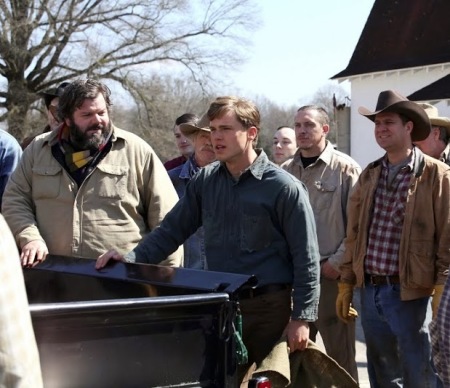Christian Reviewers Praise Low-Rated, Underperforming Film, 'The Ultimate Life,' as 'Family Friendly'

Christian reviewers praised "The Ultimate Life," a follow-up to the 2007 "The Ultimate Gift," as inspiring and teaching an important lesson about the value of family, but agreed with the widespread criticism of the film as less well-made than its predecessor.
"I don't know if It'd say it's a great film, I'd say it's a worthwhile film," Adam Holz, senior associate editor of Focus on the Family's film review site Plugged In, told The Christian Post in a Thursday interview. Holz admitted that the film has a Hallmark feel, but argued that it raised important questions about life's priorities, particularly family.
"The Ultimate Life," based loosely off the Jim Stovall book, The Ultimate Gift, follows the story of Jason Stevens, who inherited a vast fortune and foundation from his grandfather, Red Stevens. "The Ultimate Gift" portrays Jason's struggle to accomplish a series of twelve challenges to make him worthy of Red's company and fortune, a contest mandated by the dead billionaire's will. During that film, he meets and falls in love with Alexia Drummond, a nurse.
In "The Ultimate Life," Jason's family sues him, demanding their portion of Red's inheritance. Alexia, meanwhile, feels drawn to mission work in Haiti, and leaves Jason to deal with his family squabbles. Distraught, the young man turns to his grandfather's diary for wisdom, and there learns the story of Red's road to success, and his regret about prioritizing work over family.
"Directed by Michael Landon Jr., 'The Ultimate Life' is hampered by a predicable story, stereotypical characters, and wooden acting," wrote Daniel M. Gold, a New York Times film reviewer and rated "Top Critic" on Rotten Tomatoes. "Amid the pieties and the platitudes, one insight beyond the usual family fare is offered: Hard work is its own reward, but Red realizes early on that to get filthy rich, you must also make sure the hard work of others accrues to your benefit as well. How neighborly."
Gold's negative opinion proved quite mainstream. "The message of 'The Ultimate Life' could be summed up on a greeting card," wrote the Washington Post's Michael O'Sullivan. The film received a 20% rating on Rotten Tomatoes and came in 23rd place in its first weekend box office – two places behind "The Conjuring," which debuted over a month before.
Nevertheless, Dr. Ted Baehr, chairman of the Christian Film and Television Coalition and editor-in-chief of Movieguide, offered high praise for "The Ultimate Life." In a Movieguide interview, he declared, "it's a four-star movie, it's worth watching, and it's one of the best movies to come out this year."
The Movieguide review praised the film as "well-made, fun, heartwarming," and elevated it's "strong moral worldview." Red Stevens' struggle for success shows the value of hard work and being a leader of men, the review argued. It also emphasized the fact that this film lacks any objectionable content for children, like nudity and violence, although it does have brief moments of kissing.
But even Ted Baehr acknowledged that this film was not perfect. "It's not quite as good as 'The Ultimate Gift,'" he admitted.

Plugged In's Holz went further in his criticism. "There are some stereotypes here, and I'm not going to suggest it's up for an Academy Award," he admitted. The film reminded him of Hallmark films he saw in the 1970s and 1980s. "It may feel a bit dated, because filmmakers are trying to do something a little old fashioned," he said.
The film certainly has gaffes. As O'Sullivan noted, young Red gets paid with modern $20 bills in a scene set for 1941. Formulaic dialogue – with Red saying "I think I want to marry you" to his future wife at their first dance – does weaken the story, and the soundtrack evokes 1950's television.
Nevertheless, the film does bring up valuable questions. Holz summarized them as "what are you living for? What are you working for? What are the close relationships in your life?" Despite its aesthetic weaknesses, Holz said the film is exactly the sort of material Plugged In promotes – deep, noble, and family-friendly.





















